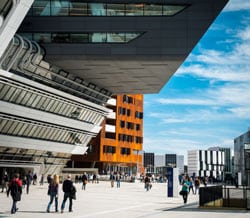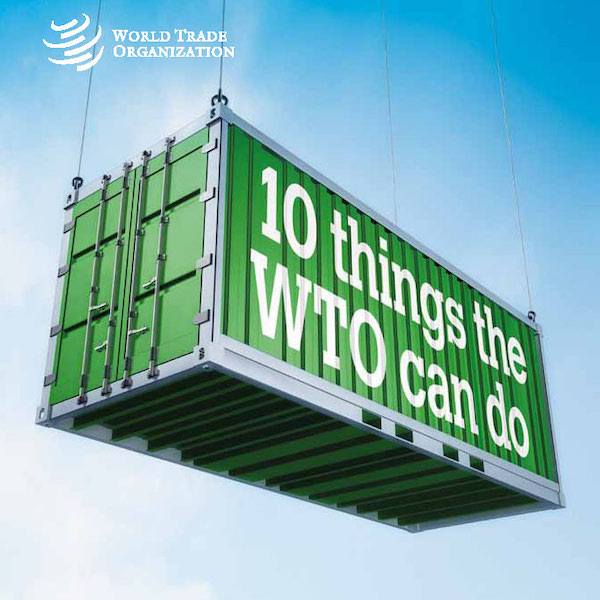Innovation Grows out of Tradition
Share

Vienna is one of the most beautiful cities of the world. Built on the banks of the river Danube, the city is renowned for its tradition, culture, empire, coffee houses, and classical music, but it is now a city with a thriving and innovative present as well as a remarkable history. On numerous occasions, including 2014, Vienna has been chosen as the city with the highest quality of life by respondents in the Mercer survey of managers and managers of international companies from 223 countries. This quality of life, as well as a cutting-edge business infrastructure, is why more than 200 international headquarters conduct their businesses from Vienna, which is the main hub between East and West in the heart of Europe.
The cultural, political and economic centre of Austria, Vienna is the tenth largest city in the EU. It hosts many major international organisations such as OPEC and the UN. It has established itself not only as the driving force of the Austrian economy, but also as a major hub for East-West business. Against the backdrop of the worldwide economic and financial crisis, Vienna’s economy has held its own and continued developing. The city has profited massively from the opening up of Eastern Europe. This is evident from the fact that around about two-fifths of the profit and sales from the Vienna economy are created in the Central and Eastern European countries.
Participation in the single currency and rapid structural changes have been the basic framework of recent economic policy in Vienna, the fiscal and structural policies of which are considered of crucial importance for the continuous growth and competitiveness of Austria as a whole. A large number of the structural reforms have helped make Vienna an investment-friendly destination. These reforms are in the fields of energy supply, telecommunications, research and development and financial services. Moreover, the Austrian government has stated its commitment to pursue a sustainable investment and financial policy.

In 2013 and 2014, more international companies chose Vienna than ever before. Vienna is considered one of the most innovative cities in the world, it is ranked number one in the United Nations‘ State of the World’s Cities Report. The metropolis on the Danube came in third place in the European Smart City comparison, and it was chosen as the world’s best city for young people. The city attracts both entrepreneurs and investors due to its geographical location, highly skilled workforce, high level of productivity and a research and technology friendly climate. Stable political and economic conditions are another internationally competitive benefit.
In recent years, the Vienna start-up ecosystem has grown rapidly. Initiatives such as Start-up Day and the Pioneers Festival and the enormous expansion of co-working spaces show how active and vibrant the Vienna start-up scene is. According to Gerhard Hirczi, Managing Director of the Vienna Business Agency: “Among the international community, 2013 shows a clear trend towards technology and service orientation. Particularly strong growth was seen in the interest of international start-ups. We support this positive development and we are therefore expanding our offerings and services as we continue to work closely with the start-up scene”.
In the past decade, the creative industries have established themselves as an important economic sector in Vienna. Growth rates are considerably higher than in other branches of industry and strengthen the city‘s position internationally. This development is partly due to the work of the creative unit of the Vienna Business Agency, departure, an idea launched by the City of Vienna ten years ago in order to improve material and non-material conditions for creative professionals. As a competence centre for designers, architects, musicians and other creative professionals, departure has become a role model at the international level.

In addition to the transfer of know-how, entrepreneurial consultancy, the promotion of network activities and initiatives for cooperation between companies in the classic economy and creative professionals the Vienna Business Agency, also provides direct financial support to companies within the creative industries. Here, the focus in on innovative ideas and the economic orientation of the projects as well as on the creative and artistic quality of the funded projects, services and business concepts.
Elsewhere, Vienna has an excellent academic tradition in the field of medical research: The Medical University has been around for over 640 years and is currently is the largest specialised medical university in Central Europe. The tradition of the famous Vienna Medical School continues today with a focus on medical biotechnology with emphasis in the areas of vaccines, anti-infectives, immunology and oncology.
Another focus is on medical technology, especially in the areas of electromechanical medical devices and software for medicine, telemedicine and e-health. For life science start-ups, Vienna is fertile ground: The number of companies emerging from the medical technology, biotechnology and the pharmaceutical industry has tripled since the turn of the millennium. Giants in the industry such as Boehringer Ingelheim and Baxter appreciate the location specific know-how offered.
FDI has triggered rapid job creation in Vienna. In the past ten years more than 1,000 international business organisations have decided to locate to Vienna, securing or creating about 9,100 jobs and triggering €800 million in investments. FDI in Vienna-based businesses has increased particularly fast; investments have tripled to €75 billion since 2002. The businesses employ over 110,000 staff altogether. The trend among new businesses is clearly towards technology and service orientation. There is also considerable demand in the fields of information and communications technologies and new media.
So, Vienna residents are surrounded by some of the world’s most beautiful architecture, ranging from the Middle Ages to contemporary architecture, e.g. by Zaha Hadid. Viennese cafes are legendary, claiming to have invented the process of filtering coffee in 1683. The city has a high level of public utilities and transportation facilities, with almost 4,500 stations serving daily commuters. It has a buzzing business environment ripe for investment. I’ll say no more.


























